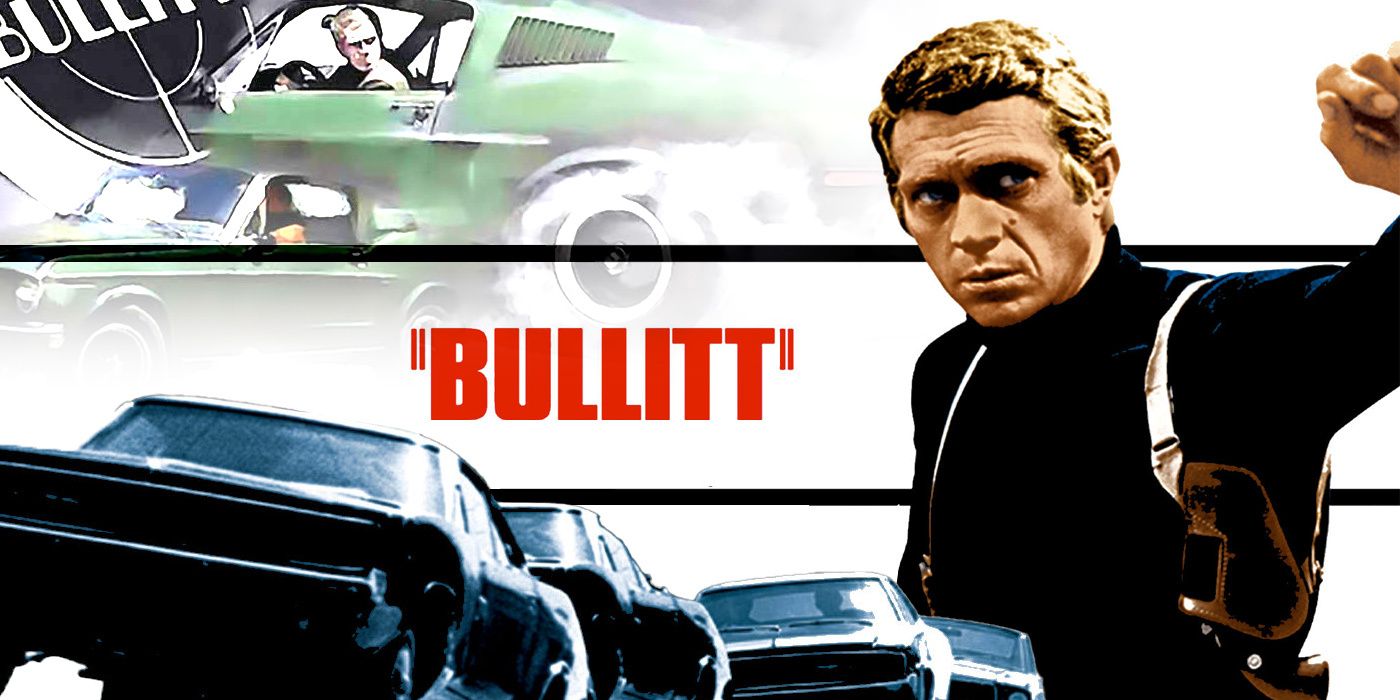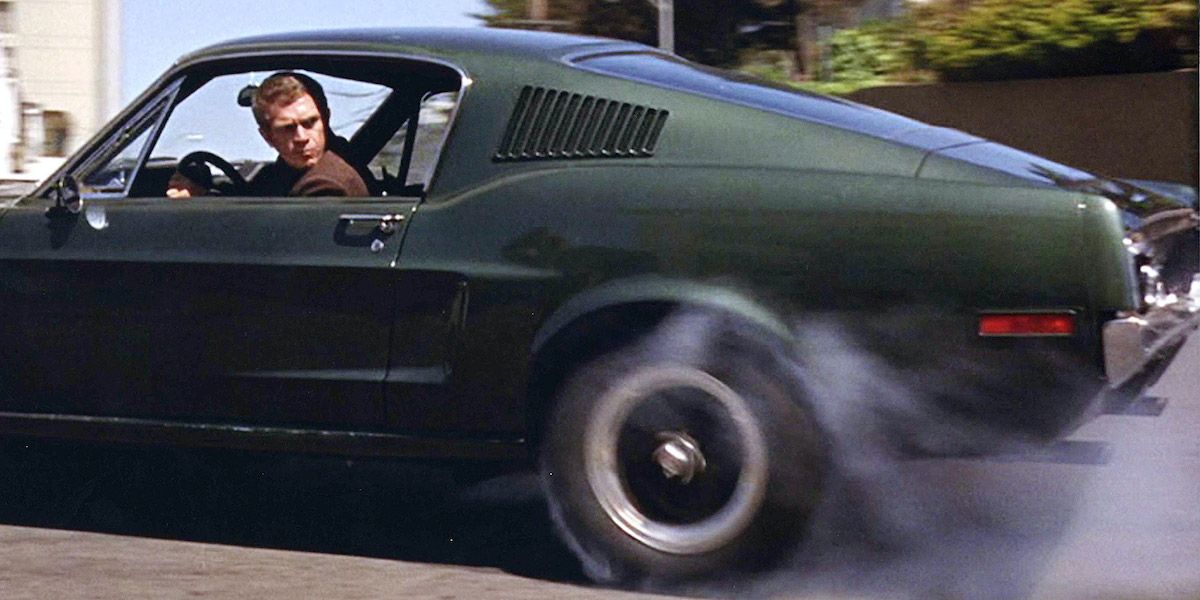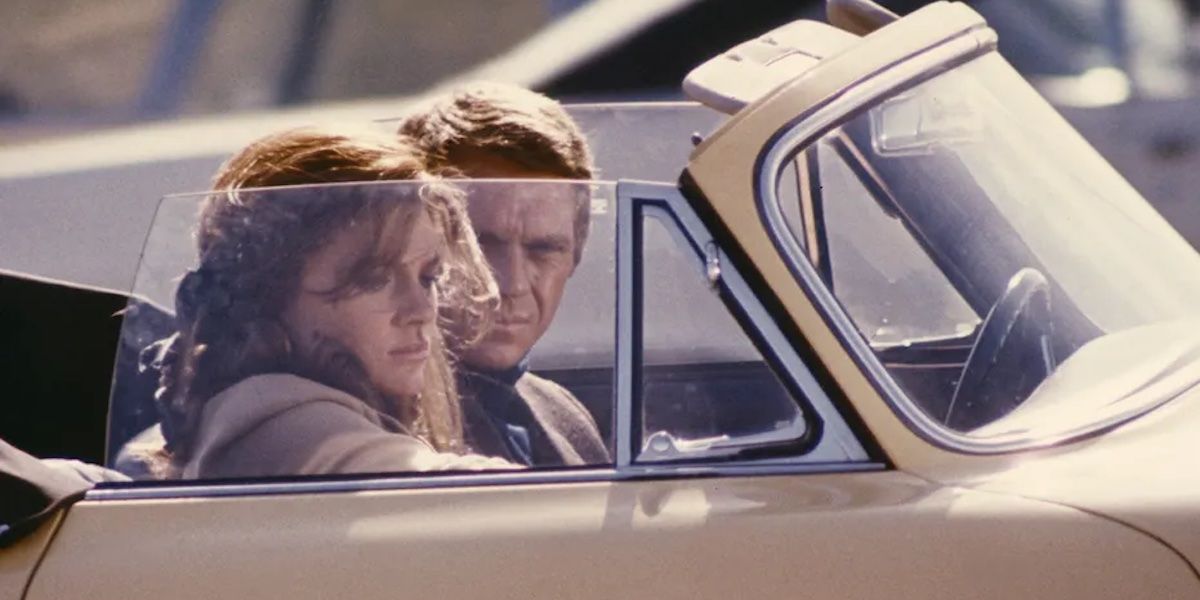Film fans were buzzing this past week when word broke that the legendary Steven Spielberg was developing a new film based on the protagonist of the 1968 car chase classic Bullitt. Spielberg has a noted history of putting many projects in development at once that don’t come to fruition; he worked on proposed films such as Robopocalypse and The Kidnapping of Edgardo Mortara extensively, but they never saw the light of day. However, here's hoping that his Bullitt endeavor might actually happen given the legendary status of the original.
Bullitt was a revolutionary work that changed the game for action cinema. The realism and practical stunt work behind the film’s car chases still hold up today, and were very influential on iconic ‘70s action films like The French Connection, Gone in 60 Seconds, Smokey and the Bandit, and even Mad Max. Although there’s no one better suited for groundbreaking action than Spielberg, he doesn’t just face the expectation of having amazing car chases. He’ll have to find someone who can fill the shoes with Lieutenant Frank Bullitt, a role made iconic by Steve McQueen in his most essential performance.
McQueen was a different type of movie star than audiences were used to in the late ‘60s. In his first major success, McQueen had been a standout in the classic 1960 western The Magnificent Seven, which was no easy task considering his co-stars were icons like Yul Brynner, Eli Wallach, James Coburn, and Charles Bronson among others. With The Great Escape, The Thomas Crown Affair, Nevada Smith, and the Cincinnati Kid, McQueen crafted an anti-hero persona that was far distinct from the straight-laced heroes of other American action and western heroes. He didn’t give goofy one-liners or save cats from trees; he was a darker, brooding leading man who felt like he could be an actual killer.
Bullitt was the embodiment of everything that makes McQueen the legend he is today. Although 1967’s Bonnie & Clyde is commonly cited as the film that launched the “New Hollywood” wave of anti-authoritatrian, counter cultural mainstream films, Bullitt was equally important. The film is frank in its depiction of police tactics, inequity, and the systemic failures to stop generational violence. The titular character himself is effortlessly cool, which came easy for someone as charismatic as McQueen. However, he wasn’t just a brooding madman. Bullitt himself is tormented because he’s the only good cop within a corrupt system, and he’s forced to carry the burden for his noble intentions.
Bullitt is a veteran of the San Francisco Police Force who is called in to protect the Chicago-based mobster Johnny Ross (Felice Orlandi), who investigators have caught attempting to flee the Chicago Outfit Italian crime family. Bullitt has his own qualms about protecting a former gangster given his experiences with mob-related crimes, but he can’t exactly refuse orders when they come from the upper state government. The Senator Walter Chalmers (Robert Vaughn) needs Ross to survive the weekend, so he can inform on his former employers at a Senate Subcommittee testimony, and he’s well aware that the mob will want to silence him before he speaks up. Only a dangerous man like Bullitt is suited for the job.
When he begins his duty, Bullitt isn’t simply trying to capture a super masculine persona in order to appeal to moviegoers. He shows the realistic day-to-day struggles that someone like Bullitt faces; he’s never going to be given credit for his nobility, but if he should fail he’ll almost certainly be lambasted by superiors. There’s a weariness to Bullitt that hints at a backstory that’s never spelled out word for word. He’s grown frustrated by his superiors, who only seem to punish him for his hard work.
He’s also blamed for the danger that ensues, as assassins swiftly come in to take out Ross and meticulously stalk Bullitt’s Ford Mustang. After he only narrowly survives the hectic gun fight, Bullitt is immediately confronted with legal proceedings by his superior officer Captain Sam Bennett (Simon Oakland) and Vaughn as they attempt to protect him from accusations of not following procedures correctly. Although he is given permission to head out of state, Bullitt’s vehicle is confiscated, and he’s forced to hitch a ride with his girlfriend Cathy (Jacqueline Bisset).
It's during these brief, but intimate moments with Cathy that Bullitt reveals his sensitivity. Cathy scolds him for frequently putting his own life in danger, as she fears that he’ll become just another casualty in a violent city where cops frequently become statistics. Bullitt doesn’t attempt to comfort her because he knows that he can’t offer her reassurance; McQueen shows the pain in Bullitt’s face, but doesn’t offer any false words. It's a rare moment in a mainstream crowd pleaser where the couple’s anxieties are grounded in something that average viewers could relate to.
That’s not to say that McQueen isn’t just as riveting as an action hero, because Bullitt’s infamous car chases made it an instant box office and cultural sensation. The film picked up the Academy Award for Best Editing, which was most likely due to an eleven-minute chase in which Bullitt’s Mustang is hunted by two Dodge Chargers. There’s a sense of unpredictability to the sequence, as the exact loyalties of Bullitt’s pursuers are unknown, and viewers were still trying to figure out how deep the cover-up went. McQueen is mostly wordless as he burns rubber. He did most of his own driving, and given McQueen’s own experiences racing, the chase feels completely convincing.
Bullitt proved that action movies didn’t have to be prosperous to be entertaining; audiences could invest in heroic characters and murder mysteries even if they weren’t rife with gags like The Italian Job. McQueen helped to give emotional distance to Bullitt. He became both someone worth admiring and somewhat of an enigma, and he wasn’t just trying to live up to the idealized standards of masculinity that the counterculture fought against. It’s unclear at the moment how Spielberg will choose to adapt Bullitt and what type of story he’ll be telling. The one thing that is certain is that whoever takes on the role next will have to live up to the legacy of “The King of Cool.”




